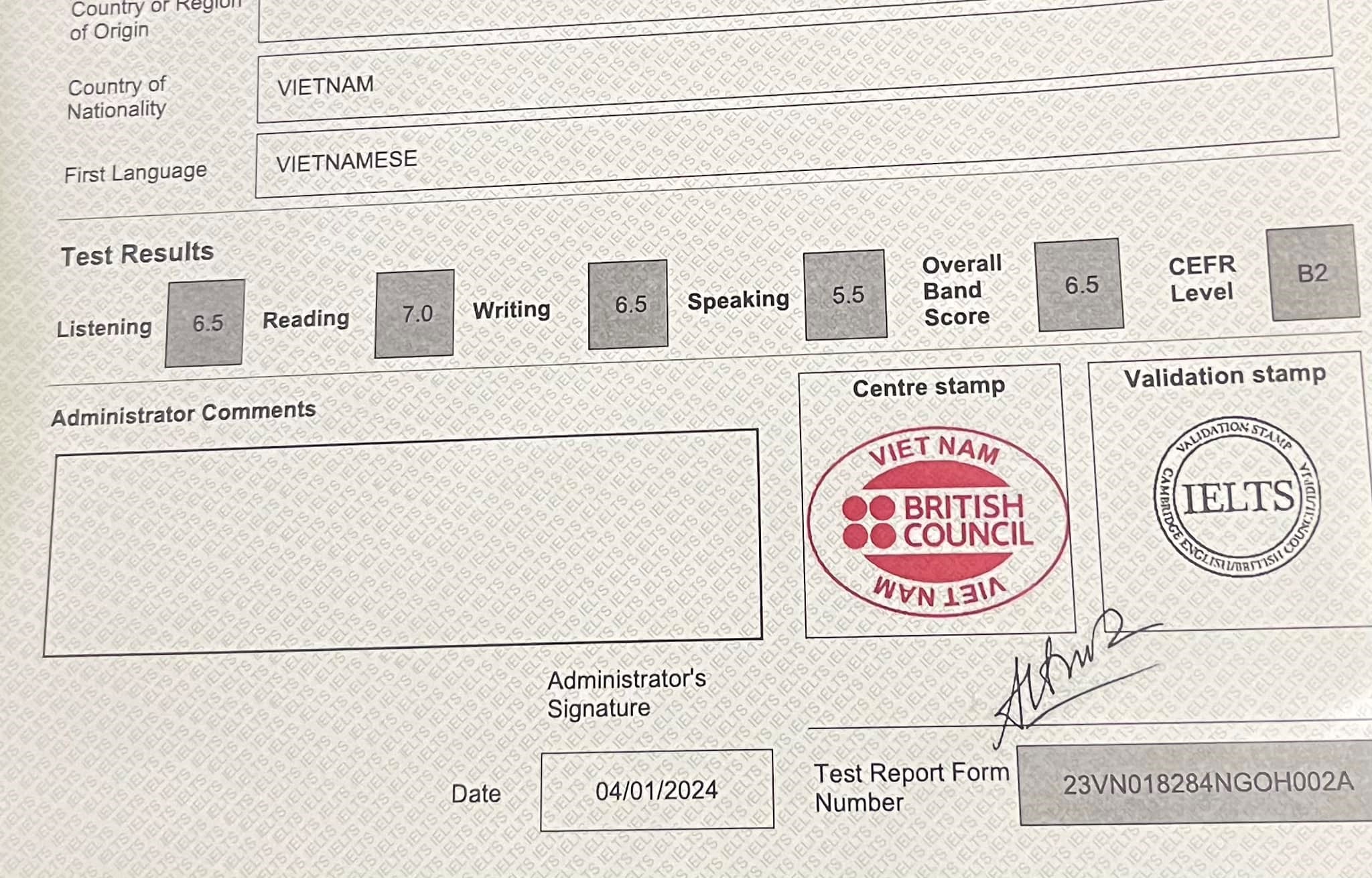40+ từ vựng IELTS 9.0 chủ đề Crime thí sinh CẦN BIẾT
Crime (Tội phạm) là một chủ đề dễ gặp trong kỳ thi IELTS. Vậy nên để đạt được số điểm cao thí sinh sẽ cần bổ sung thêm nhiều từ vựng đa dạng cho đề tài này. Thí sinh hãy cùng Smartcom English bước vào hành trình chinh phục 35 từ vựng IELTS 9.0 chủ đề Crime thông qua bài viết này nhé.

Từ vựng IELTS band 9 chủ đề Crime
Danh từ thuộc từ vựng IELTS 9.0 chủ đề Crime
- Robbery /ˈrɒb.ər.i/: Tội ăn cướp
- Theft /θeft/: Tội trộm cắp
- Burglary /ˈbɜː.ɡlər.i/: Đột nhập trái phép
- Assault /əˈsɒlt/: Tội tấn công
- Fraud /frɔːd/: Lừa đảo
- Murder /ˈmɜː.dər/: Tội giết người
- Kidnapping /ˈkɪd.næp.ɪŋ/: Tội bắt cóc
- Forgery /ˈfɔː.dʒər.i/: Tội làm giả tài liệu
- Arson /ˈɑː.sən/: Tội phóng hỏa
- Embezzlement /ɪmˈbez.əl.mənt/: Tham ô
- Extortion /ɪkˈstɔː.ʃən/: Tống tiền
- Cybercrime /ˈsaɪ.bə.kraɪm/: Tội phạm mạng
- Bribery /ˈbraɪ.bər.i/: Tội hối lộ
- Vandalism /ˈvæn.dəl.ɪ.zəm/: Tội phá hoại

Động từ thuộc từ vựng IELTS 9.0 chủ đề Crime
- Circumvent /ˌsɜː.kəmˈvent/: Lách luật
- Incriminate /ɪnˈkrɪm.ɪ.neɪt/: Kết tội
- Extradite /ˈek.strə.daɪt/: Dẫn về nước
- Abrogate /ˈæb.rə.ɡeɪt/: Bãi bỏ (luật)
- Adjudicate /əˈdʒuː.dɪ.keɪt/: Phán xét
- Abduct /æbˈdʌkt/: Bắt cóc
- Interrogate /ɪnˈter.ə.ɡeɪt/: Thẩm vấn
- Embezzle /ɪmˈbez.əl/: Tham ô
- Acquit /əˈkwɪt/: Tha bổng
- Reoffend /ˌriː.əˈfend/: Tái phạm
- Apprehend /ˌæp.rɪˈhend/: Bắt giữ

Tính từ thuộc từ vựng IELTS 9.0 chủ đề Crime
- Violent /ˈvaɪə.lənt/: Bạo lực
- Fraudulent /ˈfrɔː.dʒə.lənt/: Gian lận
- Unlawful /ʌnˈlɔː.fəl/: Phi pháp
- Felonious /fəˈləʊ.ni.əs/: Phạm tội
- Malicious /məˈlɪʃ.əs/: Ác ý
- Corrupt /kəˈrʌpt/: Tham nhũng
- Suspicious /səˈspɪʃ.əs/: Đáng nghi
- Unscrupulous /ʌnˈskruː.pjə.ləs/: Vô lương tâm
- Malevolent /məˈlev.əl.ənt/: Ác độc
- Iniquitous /ɪˈnɪk.wɪ.təs/: Xấu xa
- Culpable /ˈkʌl.pə.bəl/: Có tội
- Unimpeachable /ˌʌn.ɪmˈpiː.tʃə.bəl/: Không bị nghi ngờ
- Perfidious /pəˈfɪd.i.əs/: Lừa dối

Bài tập ứng dụng Vocabulary band 9 chủ đề Crime trong IELTS Speaking
Ứng dụng trong IELTS Speaking Part 1
Question 1: Do you think robbery is a serious crime?
Answer:
Yes, I believe robbery is an extremely serious crime due to its direct impact on victims’ safety and well-being. Robbery, which involves forcefully taking someone’s belongings, can lead to physical harm and psychological trauma for the victims. The act of burglary, for instance, instills fear in communities and disrupts the sense of security in homes and businesses. Therefore, tackling robbery effectively is crucial for maintaining law and order in society.
Question 2: Do you think embezzlement is more common in large corporations or small businesses?
Answer:
While embezzlement occurs in various settings, it is often more prevalent in large corporations due to the complexity of their financial operations. Employees in positions of trust may exploit vulnerabilities in internal controls to embezzle funds without detection. However, fraud can also occur in small businesses where oversight may be limited. Implementing robust internal controls and conducting regular audits are crucial steps to prevent embezzlement regardless of the organization’s size.

Ứng dụng trong IELTS Speaking Part 2
Question 1
Describe a situation where you witnessed or experienced a crime.
You should say:
- When and where did the incident take place?
- What type of crime occurred?
- How did you feel during the situation?
And what is the aftermath of the incident?
Answer:
One memorable incident where I encountered a crime was when I witnessed a robbery at a local convenience store. It was a typical evening, and I had stopped by to grab some groceries when suddenly, a masked individual stormed into the store brandishing a weapon. The robbery happened swiftly, with the perpetrator demanding cash from the terrified cashier. I distinctly remember feeling a sense of shock and fear as the situation unfolded before my eyes. Fortunately, no one was harmed during the robbery, but it left a lasting impression on me about the importance of safety precautions and vigilance in public spaces.
Question 2
Describe a time when you had to deal with a fraudulent situation.
You should say:
- How did you become aware of the fraudulent situation?
- What actions did you take in response?
- The outcome of the situation?
And what you learned from the experience?
Answer:
One instance where I had to confront a fraudulent situation was when I received a suspicious email claiming that I had won a lottery prize. Initially, the email seemed enticing, promising a substantial cash reward for a contest I never entered. However, upon closer inspection, several red flags indicated that it was a fraudulent scheme aimed at extracting personal information or money. Recognizing the fraudulent nature of the email, I promptly reported it to the authorities and warned others about the scam. This experience underscored the importance of skepticism and caution when dealing with unsolicited offers or requests for personal information.

Ứng dụng trong IELTS Speaking Part 3
Question 1: How do you think society’s perception of violent crimes differs from that of white-collar crimes?
Answer:
Society often views violent crimes like murder and assault with greater alarm due to their immediate and tangible impact on victims and communities. Crimes such as burglary and theft, though serious, may be perceived as less overtly harmful because they involve property rather than personal safety. However, white-collar crimes such as fraud and embezzlement can also cause significant damage, albeit in less visible ways, leading to financial loss and erosion of trust. Therefore, while society may react more viscerally to violent crimes, it’s crucial to recognize the severity and far-reaching implications of white-collar crimes as well.
Question 2: In your opinion, what measures should governments implement to combat the rise of cybercrime?
Answer:
To combat the escalating threat of cybercrime, governments must adopt a multi-faceted approach that addresses both prevention and enforcement. Firstly, investing in advanced cybersecurity infrastructure is crucial to safeguarding sensitive data and thwarting cybercrime activities such as cyberattacks and fraud. Additionally, enhancing international cooperation and information sharing among law enforcement agencies can facilitate the identification and apprehension of cybercriminals operating across borders. Moreover, implementing stringent regulations and penalties for cybercrime offenses can serve as a deterrent and hold perpetrators accountable for their actions. By taking proactive measures on these fronts, governments can effectively combat the rise of cybercrime and protect individuals and businesses from cyber threats.

Bài tập ứng dụng từ vựng IELTS 9.0 chủ đề Crime trong IELTS Writing
Question: In recent years, there has been a significant increase in cybercrimes such as fraud and identity theft. What measures do you suggest governments and individuals take to address this issue?
Sample Answer:
In the digital age, combating cybercrimes like fraud and identity theft requires a concerted effort from both governments and individuals. Firstly, governments should prioritize the enhancement of cybersecurity infrastructure to safeguard sensitive data and prevent unauthorized access to personal information. This includes investing in advanced encryption technologies and implementing robust security protocols to mitigate the risk of cyberattacks. Additionally, stringent regulations and penalties should be enforced to deter cybercriminals and hold them accountable for their actions. Moreover, individuals must take proactive measures to protect themselves online by practicing cyber hygiene such as regularly updating passwords and being cautious of suspicious emails or websites. Education also plays a crucial role in raising awareness about cyber threats and empowering individuals with the knowledge and skills to navigate the digital landscape securely. By adopting a comprehensive approach that combines technological advancements, regulatory measures, and individual responsibility, societies can effectively combat the rising tide of cybercrimes and safeguard the integrity of online ecosystems.

Mong rằng thông tin từ bài viết trên đã cung cấp cho bạn một tư liệu hữu ích về Vocabulary IELTS band 9 chủ đề Crime. Để tiếp cận thêm bài viết bổ ích cho quá trình ôn luyện IELTS, hãy truy cập và theo dõi các bài đăng trên website của Smartcom English: www.smartcom.vn/blog
Thông tin liên hệ
Smartcom English
Trụ sở chính: Smartcom English – Tầng 4 nhà 29T2, đường Hoàng Đạo Thúy, khu đô thị Trung Hòa Nhân Chính, quận Cầu Giấy, Hà Nội.
Website: https://smartcom.vn
Điện thoại: (+84) 024.22427799
Zalo: 0865835099
Email: mail@smartcom.vn
Facebook: https://facebook.com/smartcom.vn
Youtube: https://youtube.com/c/smartcomvn













